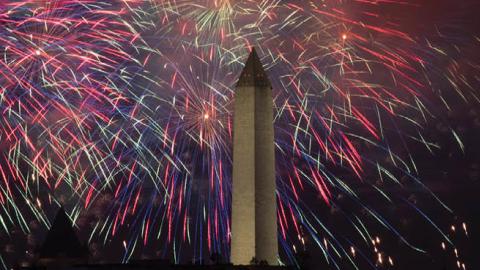Sometimes life throws you a metaphor. As my neighbors and I stood, masked and socially distanced, to watch Washington’s fireworks Saturday, a thick plume of smoke spread from the staging area to obscure part of the display. Similarly, the doom and gloom hanging over American life this year clouded but didn’t quite kill the joy of the most glorious day in our civic calendar. Even in a bad year, independence is good.
Nothing is more American than Independence Day, yet from a broader perspective, the Fourth of July is merely our local version of the world’s most widespread political festival. Think of it as British Leaving Day, a holiday celebrated from Ireland to Brunei. In some places it celebrates the happy day when the Brits, civil and well-intentioned though they may be, finally packed it in and went home. In Trinidad, Tonga and Tanzania it’s one of the highlights of the year.
In other places, as in the U.S., it isn’t the day they hauled down the Union Jack and sailed away. For us, and for the Irish (who celebrate the 1916 Easter Rising), it’s the day when the colonial rulers got served an eviction notice that, after some unpleasantness and delay, they eventually obeyed.
Read the full article in the Wall Street Journal


















